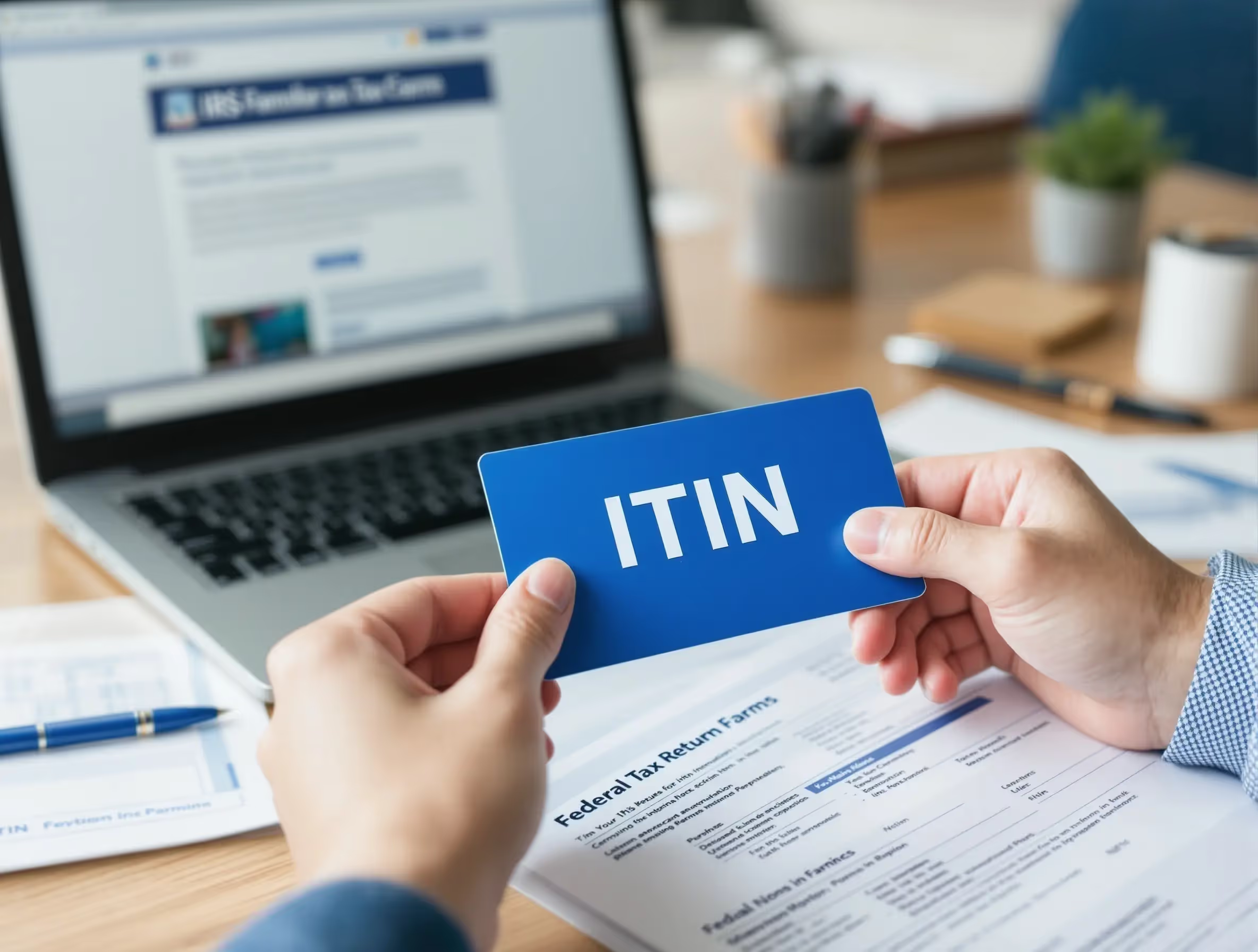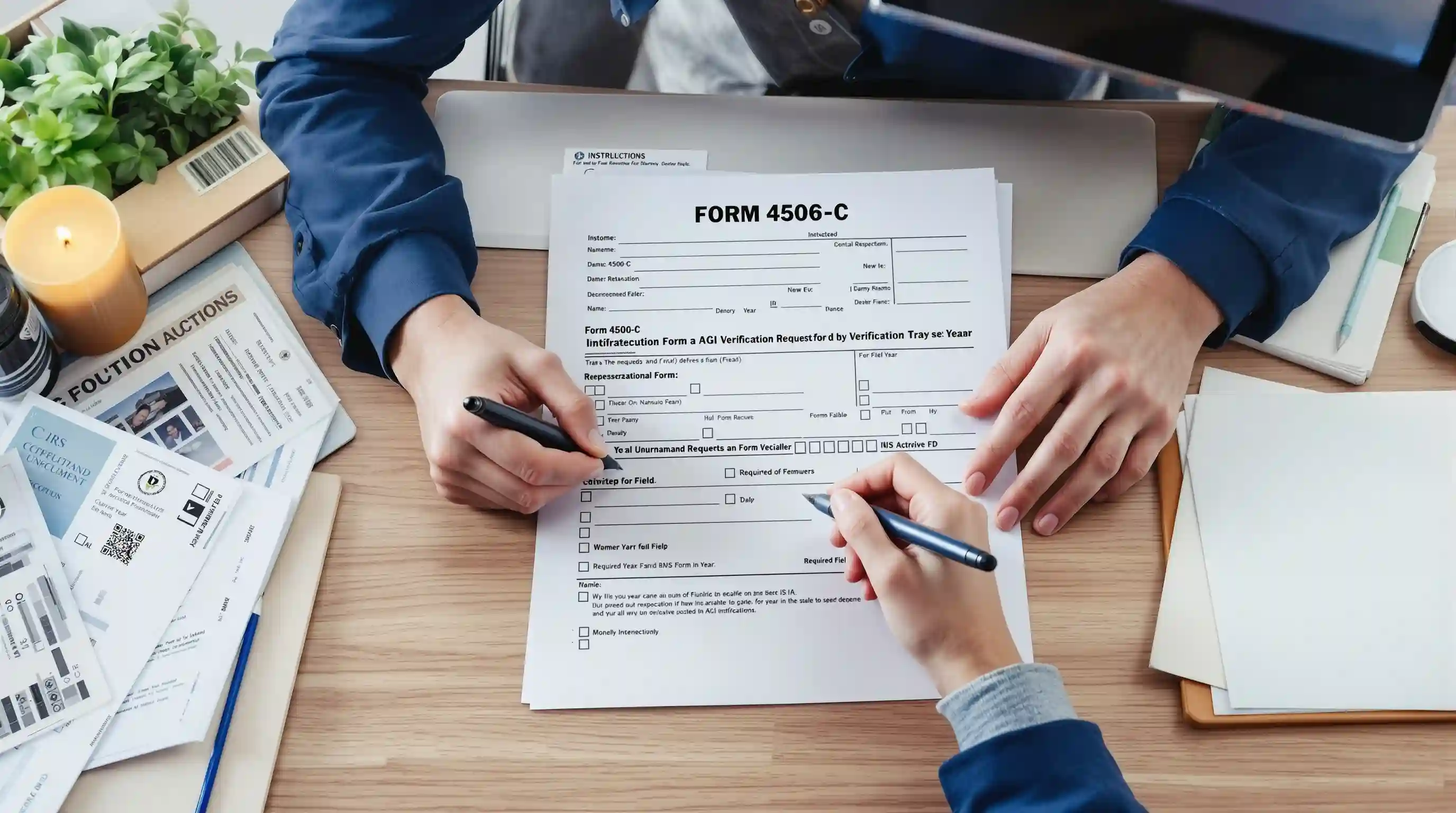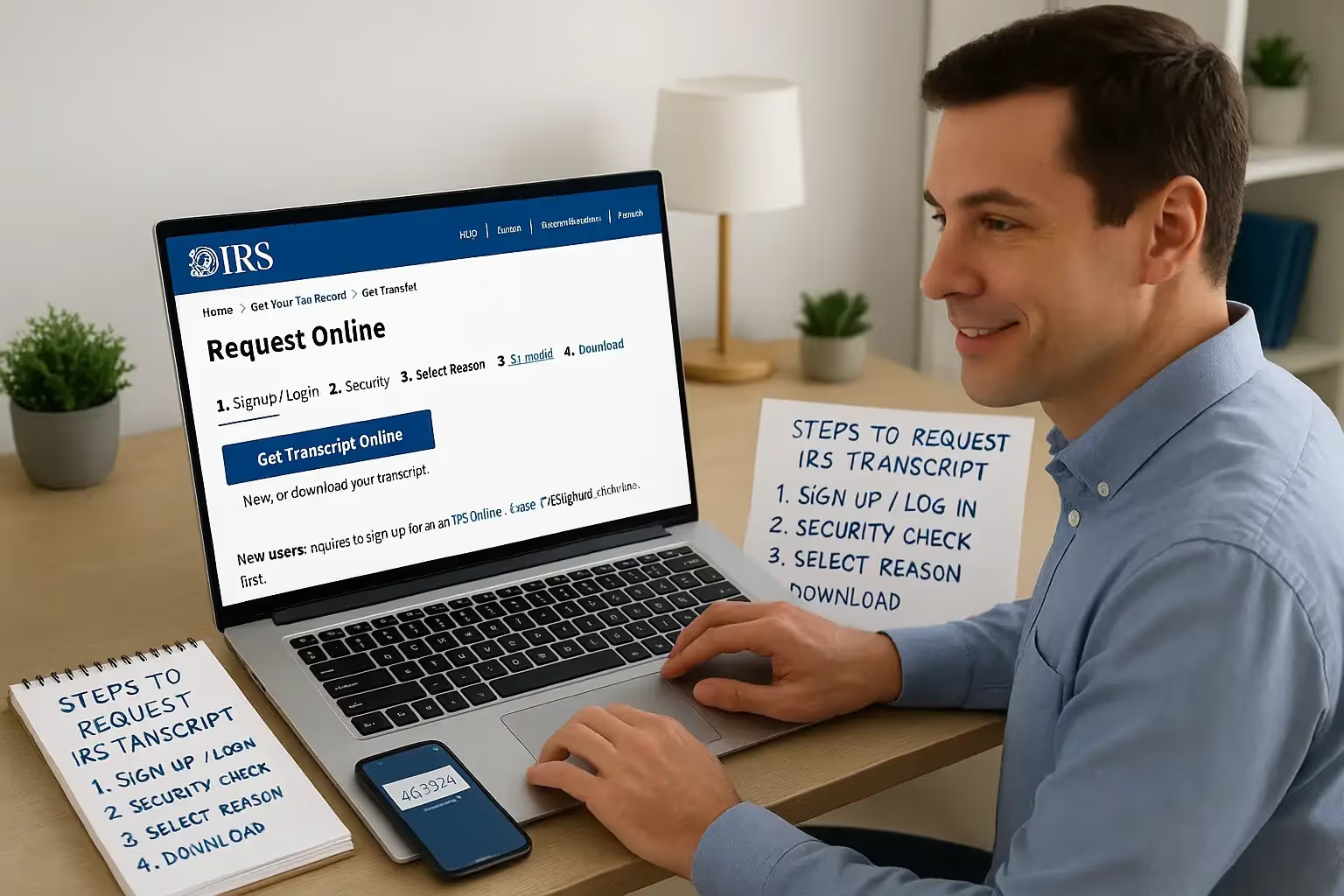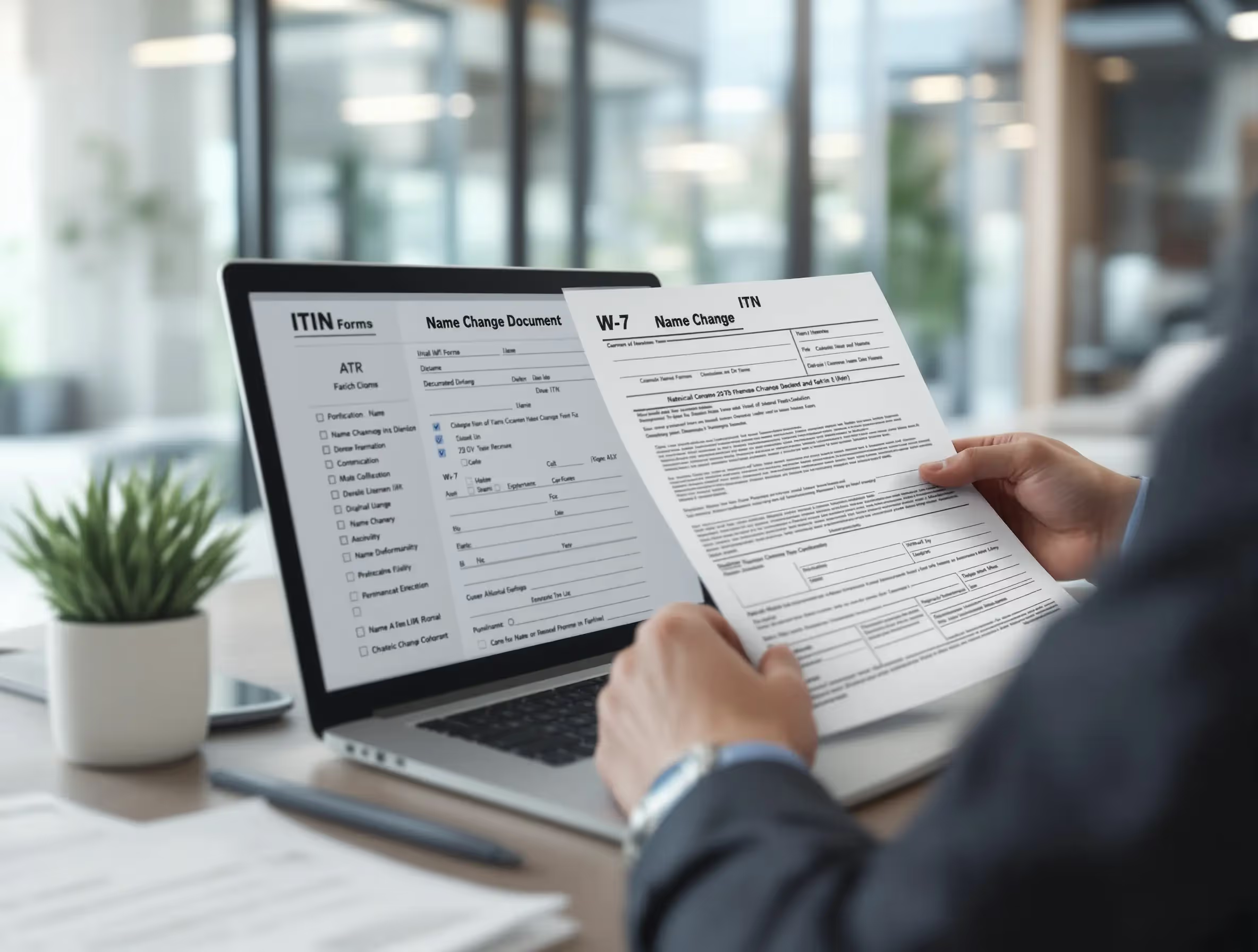
El Servicio de Impuestos Internos (IRS) emite un número de identificación fiscal individual (ITIN) a las personas que deben presentar una declaración de impuestos federales pero no son elegibles para obtener un número de seguro social. Muchos inmigrantes, estudiantes internacionales y contribuyentes confían en este número para declarar sus impuestos. Sin embargo, un ITIN vencido puede provocar demoras en el procesamiento, el rechazo de las declaraciones y la pérdida de reembolsos, por lo que la renovación es un paso fundamental antes de presentar la declaración de impuestos en 2025.
Los titulares de un ITIN deben renovar su número si no se ha utilizado en una declaración federal de impuestos sobre la renta en los últimos tres años, o si el IRS ha designado ciertos dígitos del medio como vencidos. El proceso de renovación garantiza que los contribuyentes cumplan con las leyes tributarias de los EE. UU. y puedan seguir solicitando beneficios, como el crédito tributario por hijos u otros créditos tributarios disponibles para los dependientes y cónyuges que reúnan los requisitos. Sin un ITIN válido, las personas no pueden presentar correctamente una declaración de impuestos de EE. UU. ni solicitar reembolsos que cumplan los requisitos.
Esta guía proporciona una descripción general paso a paso de la renovación de un ITIN existente en 2025. Explica los documentos de identificación requeridos, cómo completar el formulario W-7 y las diferentes maneras de solicitarlo, ya sea por correo, a través de un centro de asistencia al contribuyente del IRS o con la ayuda de un agente de aceptación certificado autorizado por el IRS. Al seguir estas instrucciones, los contribuyentes pueden evitar demoras innecesarias y garantizar que su ITIN siga siendo válido durante el año tributario en curso.
Qué es un ITIN y por qué es importante la renovación
Un Número de identificación individual del contribuyente, o ITIN, es un número de identificación fiscal emitido por el Servicio de Impuestos Internos. Está diseñado para personas que deben presentar una declaración de impuestos federales pero no son elegibles para obtener un número de seguro social. Esto incluye a los inmigrantes, los titulares de visas, los extranjeros residentes y los dependientes que deben presentar declaraciones de impuestos o cumplir con otros requisitos de declaración de impuestos.
Características principales de un ITIN
- Es un número de nueve dígitos que siempre comienza por nueve y se usa estrictamente con fines fiscales.
- Permite a las personas presentar declaraciones de impuestos federales sobre la renta y solicitar ciertos créditos tributarios, como el crédito tributario por hijos.
- No otorga autorización para trabajar en los Estados Unidos ni otorga la elegibilidad para recibir los beneficios del Seguro Social.
Por qué es importante renovar el ITIN en 2025
- Un ITIN vencido puede causar demoras en el procesamiento de las declaraciones de impuestos y puede impedir que el IRS emita un reembolso.
- Sin un ITIN válido, los contribuyentes no pueden presentar correctamente una declaración de impuestos de EE. UU. ni solicitar los créditos permitidos, lo que puede aumentar su obligación tributaria federal.
- La renovación de un ITIN existente garantiza que los contribuyentes cumplan con las leyes tributarias de los EE. UU., eviten el rechazo de su solicitud de presentación individual del IRS y sigan cumpliendo con sus obligaciones cada temporada de impuestos.
Quién debe renovar un ITIN en 2025
El IRS exige a ciertos contribuyentes que renueven un ITIN antes de presentar una declaración de impuestos federales. La renovación es necesaria si el número ha caducado o si el IRS ha designado dígitos medios específicos como si ya no son válidos.
Grupos que deben renovar los ITINs existentes
- Los contribuyentes deben renovar un ITIN si no se ha utilizado en una declaración de impuestos federales en los últimos tres años, ya que el IRS automáticamente considera que esos números están vencidos.
- Las personas con un ITIN emitido antes de 2013 deben renovarlo porque los números anteriores que no se han actualizado ya no son válidos.
- Los titulares de un ITIN cuyos números contengan dígitos medios identificados por el IRS como vencidos recibirán avisos y deberán completar el proceso de renovación antes de presentar la solicitud.
- Es posible que los dependientes y cónyuges que figuran en una declaración de impuestos de EE. UU. también deban renovar sus ITINs para calificar para el crédito tributario por hijos o el crédito para otros dependientes.
- Los estudiantes, profesores y otros titulares de visas que presenten impuestos estadounidenses con visas F, J o M deben mantener su ITIN activo para cumplir con sus obligaciones de declaración de impuestos.
La renovación mantiene a los contribuyentes elegibles para presentar declaraciones de impuestos, solicitar reembolsos y evitar demoras durante la temporada de impuestos.
Requisitos y documentación de renovación del ITIN
Para renovar un ITIN, los contribuyentes deben presentar documentación que demuestre su identidad y condición de extranjero. El IRS exige copias originales o certificadas, y no se aceptan fotocopias regulares.
Documentos de identificación requeridos
- Un pasaporte válido es el documento más utilizado porque puede demostrar la identidad y la condición de extranjero sin necesidad de registros adicionales.
- También se puede presentar una tarjeta de identificación nacional, siempre que muestre claramente el nombre, la dirección, la fotografía y la fecha de vencimiento de la persona.
- Si el pasaporte no está disponible, los dependientes suelen necesitar un certificado de nacimiento civil emitido por una agencia oficial.
- Una licencia de conducir estadounidense o una tarjeta de identificación estatal pueden verificar la identidad, pero estos documentos deben combinarse con otro registro que demuestre la condición de extranjero.
- Los registros escolares o médicos se pueden usar para los dependientes, con requisitos específicos según la edad y el estado de residencia del dependiente.
Notas especiales sobre la documentación
- Los dependientes deben mostrar un comprobante de residencia en los EE. UU., que puede incluir registros escolares, registros médicos o facturas de servicios públicos, según su grupo de edad.
- No se aceptan copias certificadas ante notario, excepto para los dependientes del personal militar estacionado en el extranjero, donde se aplican ciertas excepciones.
- Los documentos de respaldo deben ser válidos cuando se presentan, mostrar el nombre legal completo del contribuyente y establecer claramente su condición de ciudadano estadounidense y extranjero.
Proceso de renovación de ITIN paso a paso
La renovación de un ITIN requiere una preparación y presentación cuidadosas para evitar el rechazo. Seguir cada paso en orden reduce la posibilidad de demoras en el procesamiento.
Pasos para renovar un ITIN existente
- Los contribuyentes deben confirmar si su ITIN ha vencido revisando los avisos del IRS o comprobando si el número se ha utilizado en una declaración de impuestos federales en los últimos tres años.
- Los solicitantes deben completar el formulario W-7 seleccionando la opción de renovación, completando los datos personales precisos y asegurándose de que el formulario esté firmado y fechado correctamente.
- Antes de la presentación, las personas deben reunir los documentos de respaldo, como pasaportes, certificados de nacimiento o licencias de conducir, asegurándose de que sean copias originales o certificadas.
- El paquete de solicitud debe incluir el formulario W-7 completado, todos los documentos de respaldo y una declaración de impuestos federales si se requiere durante la temporada de impuestos actual.
- Por último, los contribuyentes pueden enviar su paquete de renovación enviándolo por correo al Centro de Operaciones del ITIN del IRS en Austin, Texas, solicitándolo en persona en un centro de asistencia al contribuyente del IRS o recurriendo a un agente de aceptación certificado autorizado por el IRS para obtener ayuda.
Se recomienda que los contribuyentes guarden copias de todo lo que presenten y verifiquen el estado de su solicitud de ITIN para evitar problemas al presentar una declaración de impuestos.
Tiempos de procesamiento y fechas límite para la renovación del ITIN
El IRS proporciona plazos estándar para revisar y procesar las solicitudes de renovación del ITIN, pero estos pueden variar según la época del año y la integridad de la solicitud. Comprender estos plazos ayuda a los contribuyentes a evitar demoras a la hora de presentar una declaración de impuestos federales.
Tiempos de procesamiento típicos
- Durante la temporada regular, que generalmente va de mayo a diciembre, el IRS suele procesar las solicitudes de renovación del ITIN en un plazo de siete semanas.
- En la temporada alta, entre mediados de enero y finales de abril, el procesamiento suele tardar de nueve a once semanas debido al mayor volumen de solicitudes.
- Para los contribuyentes que solicitan desde el extranjero, el IRS suele tardar de nueve a once semanas en revisar las solicitudes de renovación, independientemente de la época del año.
Plazos importantes
- Las renovaciones del ITIN deben completarse antes de que el contribuyente presente una declaración de impuestos federales sobre la renta para evitar reembolsos rechazados o retrasados.
- Las declaraciones de impuestos federales generalmente vencen el 15 de abril, aunque las prórrogas pueden permitir la presentación hasta el 15 de octubre de un año tributario determinado.
- Los documentos de identificación originales presentados con la solicitud generalmente se devuelven dentro de los sesenta días, pero los contribuyentes deben planificar en caso de demoras.
Motivos comunes de demoras o rechazos en la renovación del ITIN
Incluso un pequeño error en una solicitud de renovación de ITIN puede causar demoras en el procesamiento o resultar en una notificación de rechazo por parte del IRS. Los contribuyentes deben tomar medidas para evitar los problemas más frecuentes.
Problemas de documentación
- Las solicitudes a menudo se retrasan cuando los contribuyentes presentan documentos de identificación vencidos, como pasaportes o tarjetas de identificación nacionales que ya no son válidos.
- Los rechazos se producen si el solicitante no incluye dos formas de documentación cuando es necesario o si los documentos no establecen claramente la identidad y la condición de extranjero.
- Las fotocopias de baja calidad, los escaneos poco claros o los documentos a los que les faltan páginas también pueden impedir que el IRS complete su revisión.
Errores en el formulario W-7
- La falta de firmas o fechas en el formulario W-7 es un motivo común de rechazo porque el IRS exige formularios completos y precisos.
- La información personal incoherente, como nombres que no coinciden, fechas de nacimiento incorrectas o información contradictoria sobre un país, puede hacer que el IRS emita una notificación.
Problemas con las declaraciones de impuestos
- Algunos solicitantes no adjuntan una declaración de impuestos federales cuando es requerida, lo que resulta en un paquete de renovación incompleto.
- Es posible que otros se olviden de marcar las casillas correspondientes a los dependientes o de incluir los cronogramas necesarios para solicitar los créditos tributarios, lo que provoca más demoras.
El papel de los agentes de aceptación certificados (CaaS) en la renovación del ITIN
Un agente de aceptación certificado, o CAA, es una persona u organización autorizada por el IRS para ayudar a los contribuyentes a solicitar o renovar un ITIN. El uso de una CAA puede reducir la probabilidad de rechazo y ayudar a garantizar que se cumplan todos los requisitos.
Beneficios de trabajar con un CAA
- Una CAA puede autenticar los documentos de identificación originales, lo que significa que los contribuyentes no tienen que enviar documentos confidenciales directamente al IRS.
- Los contribuyentes que trabajan con una CAA se benefician de la orientación de expertos, que ayuda a reducir los errores y evitar demoras en el procesamiento durante el proceso de renovación.
- Una CAA también puede devolver los documentos con mayor rapidez, lo que brinda tranquilidad a las personas que necesitan sus pasaportes o registros de identificación para viajar u otros fines.
Cómo los profesionales de impuestos pueden convertirse en CaaS
- Los profesionales de impuestos deben completar la capacitación del IRS sobre los procedimientos del ITIN y la identificación de documentos forenses para calificar como CAA.
- Los solicitantes deben pasar las verificaciones de antecedentes y cumplir con los estándares de idoneidad establecidos por el IRS antes de brindar estos servicios.
- Para permanecer autorizados, los agentes de aceptación certificados deben mantener los estándares de calidad, renovar su acuerdo cada cuatro años y presentar un número mínimo de solicitudes de ITIN al año.
Solución de problemas y pasos siguientes
Incluso con una preparación cuidadosa, algunas solicitudes de renovación del ITIN pueden retrasarse o rechazarse. Los contribuyentes deben saber qué esperar y cómo responder si surgen problemas.
Qué hacer si se rechaza su renovación
- Cuando el IRS envía un aviso CP566, la agencia necesita más información antes de completar la renovación. Los contribuyentes deben reunir los documentos solicitados y responder dentro de la fecha límite.
- Si el IRS emite una notificación CP567, significa que la renovación ha sido denegada y que el contribuyente debe corregir los problemas identificados y presentar una nueva solicitud.
- Guardar copias de todos los documentos y correspondencia ayuda a los contribuyentes a responder de manera eficiente a cualquier solicitud o rechazo del IRS.
Cómo hacer un seguimiento con el IRS
- Los contribuyentes pueden verificar el estado de su solicitud de ITIN llamando al IRS o visitando un centro de asistencia al contribuyente del IRS, donde el personal puede brindar orientación directa.
- Si los documentos de identificación originales no se han devuelto en un plazo de sesenta días, los solicitantes deben comunicarse con el IRS para rastrear su declaración y solicitar asistencia.
- Los contribuyentes que enfrentan problemas pueden beneficiarse de trabajar con un agente de aceptación certificado autorizado por el IRS, quien puede ayudar a resolver los problemas y reducir los riesgos futuros.
Errores comunes y cómo evitarlos
Revisar cuidadosamente la solicitud antes de presentarla puede evitar muchos retrasos en la renovación del ITIN. Comprender los errores frecuentes ayuda a los contribuyentes a ahorrar tiempo y evitar un estrés innecesario.
Errores frecuentes que cometen los contribuyentes
- Algunos solicitantes envían fotocopias en lugar de copias originales o certificadas de los documentos de identificación, que el IRS no acepta.
- Otros contribuyentes dejan incompletas las secciones requeridas del formulario W-7, como no marcar una casilla, no proporcionar una firma o incluir la fecha correcta.
- Los rechazos suelen ocurrir cuando los datos personales del formulario W-7, como el nombre o la fecha de nacimiento, no coinciden con la información de los documentos presentados.
- A veces se deniega a los dependientes cuando los solicitantes no presentan pruebas de residencia en los EE. UU., como registros escolares, registros médicos u otras pruebas de respaldo.
Cómo prevenir problemas
- Los solicitantes deben usar la lista de verificación del IRS antes de enviar su paquete para confirmar que todos los documentos de respaldo son válidos y están incluidos.
- Las copias certificadas deben ser claras, completas y de alta calidad para que el IRS pueda verificar la información sin confusión.
- Los contribuyentes deben revisar todos los formularios y documentos para confirmar que los nombres, las fechas de nacimiento y las direcciones coinciden en todos los registros.
Próximos pasos y llamado a la acción
La renovación de un ITIN es esencial para cualquier persona que deba declarar impuestos en los Estados Unidos pero que no sea elegible para obtener un número de seguro social. Prepararse con anticipación y seguir cada paso del proceso de renovación ayuda a garantizar una presentación sin problemas durante la temporada tributaria de 2025.
Pasos para los contribuyentes individuales
- Las personas primero deben confirmar si su ITIN ha vencido o está venciendo y, de ser así, renovarlo antes de presentar una declaración federal de impuestos sobre la renta.
- Los contribuyentes deben reunir los documentos de identificación necesarios, como pasaportes o certificados de nacimiento, y asegurarse de que cada documento sea válido y esté actualizado.
- Para evitar demoras en el procesamiento, los solicitantes deben completar el formulario W-7 con cuidado, adjuntar los documentos de respaldo requeridos y enviar el paquete antes de la fecha límite de impuestos.
Pasos para los profesionales de impuestos
- Antes de presentar la próxima declaración de impuestos de EE. UU., los profesionales de impuestos deben revisar los archivos de los clientes para identificar a cualquier persona que tenga un ITIN existente y necesite renovarlo.
- Los profesionales pueden considerar la posibilidad de postularse para convertirse en agentes de aceptación certificados, lo que les permite autenticar los documentos y reducir los riesgos de rechazo de los clientes.
- Las oficinas deben actualizar los procedimientos y capacitar al personal para garantizar que los clientes reciban una orientación precisa sobre los requisitos de renovación del ITIN.
Por qué es importante actuar ahora
- La presentación de impuestos con un ITIN vencido puede retrasar los reembolsos, impedir que los contribuyentes soliciten créditos y generar correspondencia adicional con el IRS.
- Completar el proceso de renovación anticipadamente ayuda a los contribuyentes a evitar los largos tiempos de procesamiento que suelen ocurrir durante la temporada alta de impuestos.
- La adopción de medidas proactivas garantiza el cumplimiento de las normas tributarias de los EE. UU. e infunde confianza en los contribuyentes con respecto a la tramitación sin problemas de su declaración de impuestos federales.
Preguntas frecuentes
¿Qué sucede si mi ITIN vence y presento una declaración de impuestos?
Si un ITIN vence, el Servicio de Impuestos Internos procesará la declaración de impuestos federales, pero los créditos tributarios y los reembolsos se retrasarán hasta que se renueve el número de identificación del contribuyente (ITIN). Los titulares de un ITIN que declaran impuestos con un ITIN vencido también pueden recibir avisos sobre números faltantes o no válidos. La renovación antes de la temporada de impuestos ayuda a garantizar el procesamiento oportuno y el cumplimiento de las leyes tributarias de EE. UU.
¿Cómo renuevo un ITIN existente para 2025?
Para completar la renovación del ITIN 2025, los contribuyentes deben completar el formulario W-7, reunir copias originales o certificadas de los documentos de identificación y presentarlos junto con una declaración federal de impuestos sobre la renta, si es necesario. Los solicitantes pueden enviar el paquete por correo, acudir a un centro de asistencia al contribuyente del IRS o trabajar con un agente de aceptación certificado autorizado por el IRS. El proceso de renovación garantiza que los titulares del ITIN puedan presentar una declaración de impuestos en EE. UU. y solicitar reembolsos o créditos tributarios.
¿Los dependientes y los cónyuges deben renovar un ITIN?
Sí, los dependientes y los cónyuges que figuran en una declaración de impuestos de EE. UU. deben renovar un ITIN si el número ha caducado o si el IRS ha identificado ciertos dígitos medios para su vencimiento. La renovación es necesaria para solicitar créditos como el crédito tributario por hijos u otros beneficios tributarios. Es posible que se necesiten documentos justificativos, como los registros escolares, los certificados de nacimiento o la prueba de residencia, para establecer la elegibilidad a efectos de la declaración de impuestos.
¿Puedo comprobar el estado de mi solicitud de ITIN después de presentarla?
Los solicitantes pueden verificar el estado de su solicitud de ITIN llamando al IRS o visitando un centro de asistencia al contribuyente del IRS. La unidad de identificación fiscal individual del IRS también puede proporcionar actualizaciones sobre las demoras en el procesamiento. Los contribuyentes deben tener en cuenta que los documentos y registros de identificación generalmente se devuelven dentro de los sesenta días. Conservar una copia del formulario W-7 completo y de todos los documentos justificativos garantiza la presentación del comprobante en caso de que surjan problemas durante la renovación.
¿Qué documentos se requieren para renovar un ITIN?
El IRS exige copias originales o certificadas de los documentos de identificación cuando una persona solicita la renovación de un ITIN. El registro más común es un pasaporte válido, pero también se puede usar una licencia de conducir, una tarjeta de identificación nacional o un registro escolar. Los documentos deben estar vigentes, estar vigentes y ser consistentes con la información del formulario. Es posible que los dependientes y los titulares de visas necesiten un comprobante adicional de residencia en los EE. UU. para poder solicitar la renovación.
¿Puedo usar un ITIN vencido para solicitar el crédito tributario por hijos?
No, los contribuyentes no pueden solicitar el crédito tributario por hijos u otros créditos tributarios con un ITIN vencido. El Servicio de Impuestos Internos exige un número de identificación fiscal individual válido antes de conceder créditos o emitir reembolsos. La renovación de un ITIN existente garantiza que los contribuyentes puedan presentar sus declaraciones de impuestos correctamente, solicitar todos los beneficios elegibles y evitar demoras en el procesamiento. Completar el proceso de renovación antes de la fecha límite del año tributario ayuda a evitar interrupciones innecesarias.
















.avif)














































































